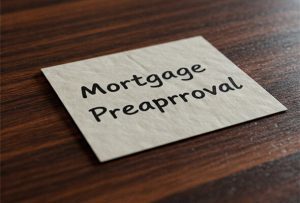Oftentimes, homeowners are plagued with the dilemma of paying their mortgage early or investing their extra funds. While it’s a great problem to have, it also requires serious consideration and a lot of thinking. Surely, financial security is the end goal.
But to achieve this, it’s crucial to understand the positives and negatives of each option so you can make the best-informed decision possible.
This article aims to provide an answer to your woes: should you focus on eliminating debt to secure your home, or should you take advantage of market opportunities and grow your wealth? Let’s break it down.
Should I pay off my mortgage or invest?
The decision to pay off your mortgage early or invest hinges on several factors, including what your long-term goals are for your finances, what your risk tolerance is, and most importantly, your unique personal circumstances.
There are some who prioritize eliminating debt first to achieve financial freedom, while others see greater value in leveraging low-interest mortgage rates to generate higher returns through investments. To determine the best path, consider both the benefits and drawbacks of each strategy.
Pros of Paying Off Your Mortgage
It’s always a good idea to pay off your 30-year mortgage in 15 years, but when faced with a decision whether to direct those funds toward potential investment gains, then the decision becomes a bit blurry.
Here are the benefits of settling your mortgage balance first:
1. You’ll reduce the amount spent on interest.
When you pay your mortgage early, you’ve saving a significant amount of money by cutting off interest payments. This is particularly beneficial in the early years of your loan when a large portion of your monthly payments goes toward interest rather than the principal. The sooner you eliminate interest payments, the more you save overall.
2. You can utilize your home equity.
A paid-off mortgage means full ownership of the home. This allows you to access your equity should your circumstances call for it. This equity can be used for future financial needs, such as home renovations, business investments, or emergency expenses.
3. You’ll eliminate your debt.
Many people find peace of mind in not having any debt. Particularly as you get closer to retirement, having no mortgage payment relieves you of financial strain and gives you a sense of economic stability.
4. You’ll have more funds available in the future.
Eliminating your home payment frees up resources that may be used for investments, savings, or upgrades to your lifestyle, among other financial goals. You may improve your quality of life and have greater possibilities for the future with this financial freedom.
Cons of Paying Off Your Mortgage
While it sounds like a great idea overall, it’s not always rainbows and butterflies. Here are things to keep in mind that may put off the decision to pay off your mortgage early.
1. You could deplete your savings.
Early mortgage repayment may tie up a sizable amount of your liquid assets, reducing your available funds for investments or unforeseen expenses. Maintaining a healthy emergency reserve is necessary before taking this alternative into consideration.
2. It might be your sole investment.
You can lose out on diversifying your assets if you spend all of your excess money on settling your mortgage. Although a paid-off house is desirable, it doesn’t yield the same returns as other investments.
3. You’ll lose mortgage tax deductions.
In certain areas, homeowners benefit from the deduction of mortgage interest from their taxes. This tax incentive is lost when you pay off your loan, which may cause a consequence on your total tax strategy. To find out how this could impact your financial status, it’s wise to speak with a financial expert.
4. You might incur prepayment penalties.
Some mortgage agreements include prepayment penalties for paying off your loan early. These can reach up to 1% or AED 10,000, exclusive of VAT. The savings you would obtain from doing away with interest payments may be somewhat offset by these costs. Before deciding to make an early repayment, always review the conditions of your mortgage.
Pros of Investing
Investing will yield more cash excess in the long run, but is it better for your circumstance than paying off your mortgage immediately? Here are the benefits you gain when you invest:
1. You’ll achieve a higher rate of return.
Investing in stocks, bonds, real estate, or other financial instruments has historically provided higher returns than the interest saved from paying off a mortgage. If your mortgage has a low interest rate, investing your extra funds in the market may yield greater long-term gains.
2. You’re boosting your future wealth.
Consistently investing over time helps grow your wealth through compounding returns. By prioritizing investments over mortgage repayment, you can take advantage of market opportunities and potentially build a larger financial cushion for the future.
3. You’ll have better asset liquidity.
Unlike home equity, which can be difficult to access quickly, investments such as stocks and bonds provide greater liquidity. This means you can access your funds when needed, whether for emergencies or new opportunities.
4. There’s potential for an employer match.
If your employer offers a retirement plan with matching contributions, investing in your retirement accounts before paying off your mortgage can be highly beneficial. Employer matches essentially provide free money, which can significantly boost your long-term savings.
Cons of Investing
The potential for investment gains is a path that isn’t paved in gold. Remember these things before you commit to the decision.
1. Investing carries more risk.
Unlike paying off your mortgage, which provides a guaranteed return by eliminating interest payments, investing comes with market fluctuations. While long-term investing can be lucrative, there is always a risk of losses, particularly during market downturns.
2. You’ll still have mortgage payments.
Choosing to invest instead of paying off your mortgage means you’ll continue to have monthly mortgage payments. This can impact your cash flow and financial flexibility, especially if unforeseen financial challenges arise.
3. Investing doesn’t eliminate your debt.
Investing while carrying a mortgage means you’ll still have outstanding debt. Some homeowners prefer the peace of mind that comes with being debt-free rather than the potential financial gains from investing.
Finding the Right Balance: Which Option is Best for You?
The right decision depends on your financial goals, risk tolerance, and overall situation. If you prioritize security and peace of mind, paying off your mortgage may be the better choice. On the other hand, if you have a low mortgage interest rate and are comfortable with investment risks, growing your wealth through investments could be the smarter move.
For many, a hybrid approach works best. Consider making extra mortgage payments while also investing in your retirement and other assets. This allows you to enjoy the benefits of both strategies without putting all your financial resources in one place.
At Sire Finance, we help clients navigate these financial decisions with expert guidance tailored to their unique needs. Whether you’re looking to pay off your mortgage faster, build an investment portfolio, or balance both strategies, our team can provide personalized solutions to help you achieve financial stability and long-term growth.
Ultimately, whether you choose to pay off your mortgage or invest, the key is to make a decision that aligns with your financial goals and secures your future.








